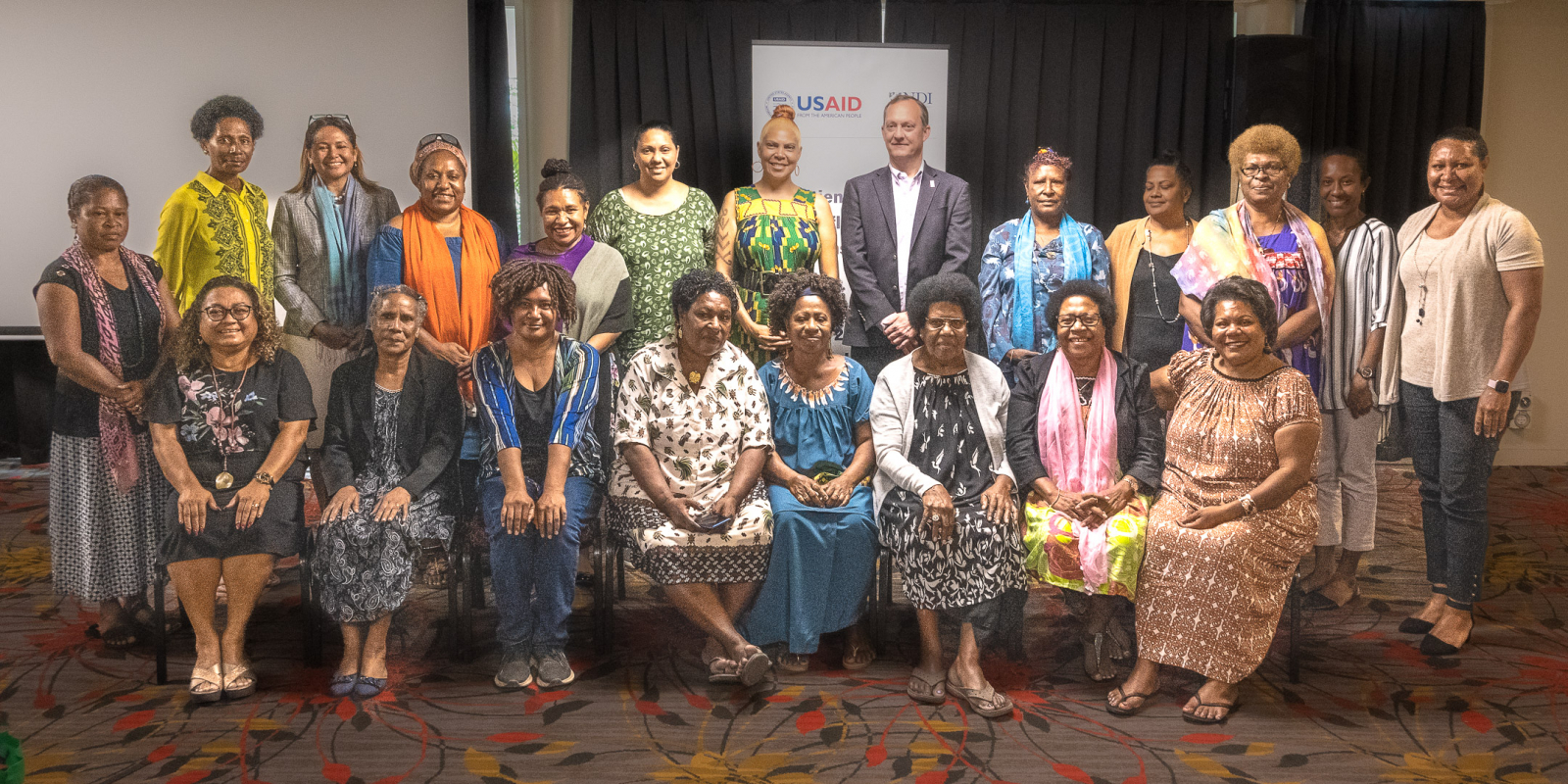
SHARE
The remarkable achievement of two women—Hon. Kessy Sawang and Hon. Rufina Peter—being elected to the Papua New Guinea (PNG) National Parliament after an all-male term (2017 - 2022) demonstrates that, despite tremendous barriers, there are openings in the political environment that can be leveraged to consolidate women’s representation in the country’s political institutions. While around 100 election petitions are still waiting to be resolved in court and a few electorates are yet to see their representatives confirmed as members of parliament, the momentum for reflection is building. Candidates, election observers, and other stakeholders are echoing each other’s calls for a thorough review of the 2022 PNG National General Election and propose swift and comprehensive reforms ahead of the country's next Local-Level Government election slated for 2024 and the National General Election scheduled to take place in 2027.
In an effort to add to the growing calls for reform and build a nuanced understanding of the successes and shortcomings of the 2022 election, NDI supported 17 women candidates and 15 gender inclusion advocates to share their experiences, insights, and recommendations. The event conducted in Port Moresby, on November 3 and 4, built on the conclusions of a trauma-informed workshop for women candidates, conducted earlier this year, which aimed to strengthen the resilience of women in politics and elections against gendered violence.
The women candidates, through sharing their insights, were able to increase resilience to deal with the difficult election environment, increase collaboration and peer learning and gain a better understanding of barriers and how to address them. They shared everything from practical advice like “Have a financial plan—you can’t move a car without fuel” as well as giving tips on the more complex issues like violence against women in elections. With the help of NDI, they created a paper called “They Come Clean, They Contribute, and Yet They Don’t Get In”. It captures all these valuable perspectives and collect actionable recommendations to key election stakeholders.
Overall, women candidates noted a continuing trend of deterioration of the overall election environment due to an increased role of money politics, widespread violence, and inefficient election administration. However, they also applaud the advances that include a higher level of support for women candidates from political parties and an increased collaboration among candidates on issues related to election transparency and integrity.
These first-hand insights on barriers in the way of women’s participation and strategies to overcome them will be shared with other prospective candidates in the local and national elections and is a tool for them to use in the future. The women candidates also called for a thorough review of the 2022 election to assess the scale and breadth of shortcomings and hold those responsible to account. They demand comprehensive reforms to create an environment in which men and women can compete more equitably and represent their constituencies. If left unaddressed, in the next elections, we could see the recent gains reversed something that has happened before. Capturing and sharing this information is critical to keeping up momentum in Papua New Guinea and helping what is now just two women in Parliament to grow to many more in the future.
This project is funded by the United States Agency for International Development (USAID), and is implemented by NDI through the Consortium for Electoral and Political Processes (CEPPS).
Author: Ancuţa Hansen, NDI Senior Country Director for the Pacific Islands
###
NDI is a non-profit, non-partisan, non-governmental organization that works in partnership around the world to strengthen and safeguard democratic institutions, processes, norms and values to secure a better quality of life for all. NDI envisions a world where democracy and freedom prevail, with dignity for all.


